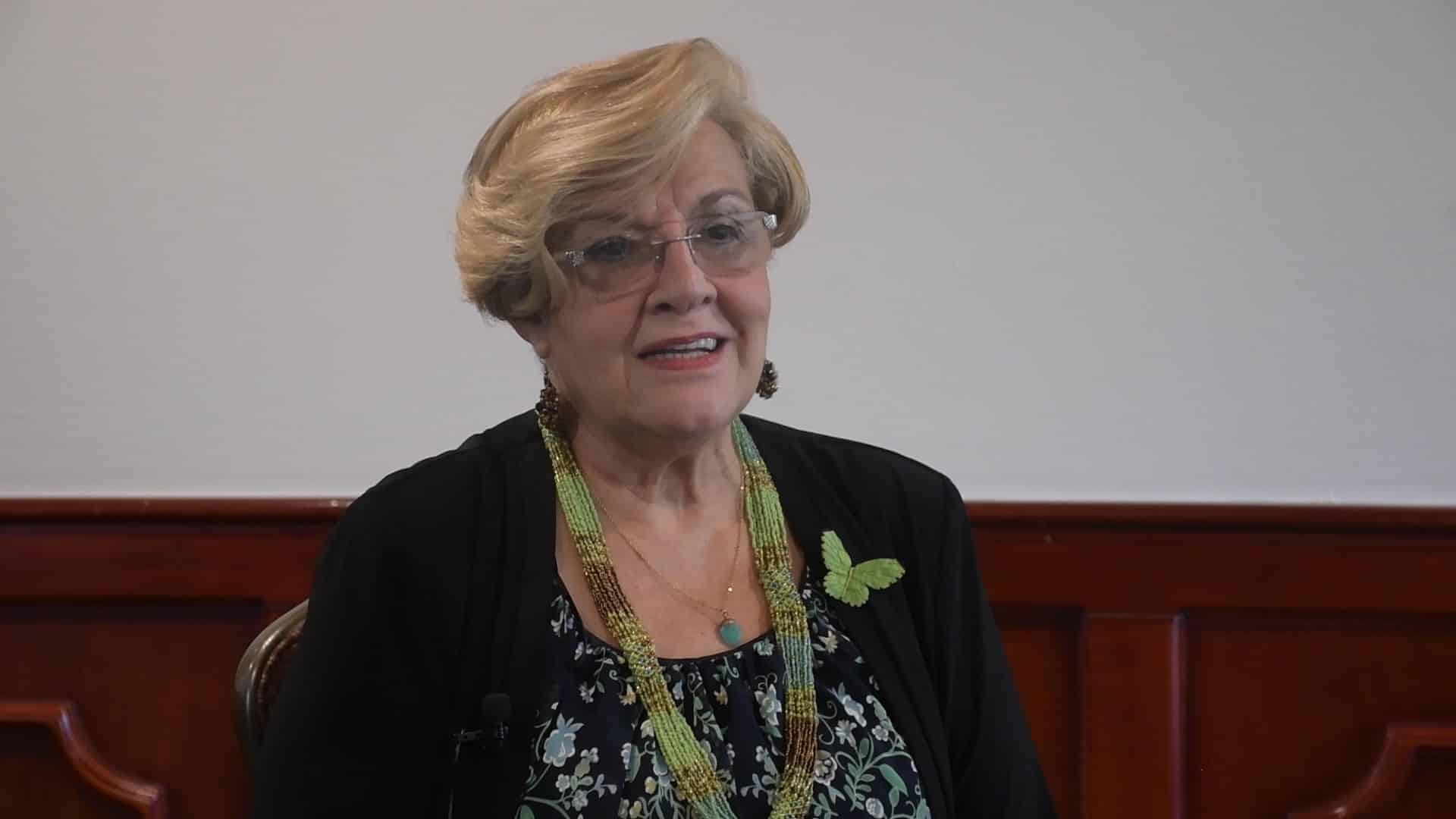The last visit to the political prisoners locked up in El Chipote —in which the Police allowed, for the first time, the prisoners of conscience to see their minor children— was not at all a gesture of openness on the part of the Daniel regime Ortega and Rosario Murillo, say human rights defenders. On the contrary, it was the recognition of a right that has been violated and therefore, they emphasize that it must be insisted until open some channel of communication that allows a peaceful solution to the crisis.
“The only formula to get out of the crisis is to open up the country and stop this attitude of international reiteration, which is unsustainable,” warns Alberto Brunori, of the Office of the United Nations High Commissioner for Human Rights (OHCHR), during a interview he gave to the program Tonight, together with the rapporteur for Nicaragua of the Inter-American Commission on Human Rights (IACHR), Emerald Arosemena.
Arosemena, for her part, indicates that the Commission is fully aware that there is “a serious systematic violation of human rights” in Nicaragua, but regrets not being able to find a response to the “closing of possibilities and lack of openness to dialogue” by the Government of Ortega and Murillo.
“In order to understand this (what is happening) we need the Government of Nicaragua to reflect, and its analysis that it has as a ruler, to be able to exchange positions and be able to say that there is an opening to the international community in terms of defense of the human rights of Nicaraguan citizens”, points out Arosemena. But the Ortega regime not only refuses to cooperate with human rights organizations, it attacks them and tries to discredit them.
All the commissioners of the IACHR are “aware of the reality” that exists in Nicaragua, explains Arosemena. “We are in permanent monitoring, we have maintained a follow-up mechanism with which we work precisely with all the people who have left the country, the people who are in a situation of terror within the country… we manage to have a lot of information and with it we prepare also our press releases, our reports,” he continued.
In Arosemena’s opinion, cooperation with other international human rights organizations has been essential when making decisions on Nicaraguabut appreciates that it is necessary to call on specialists in the region to make an analysis of what happens when a country is closed to international observation.
an untenable situation
For Brunori, the situation in Nicaragua “is unsustainable”, since no State can remain “in a confrontation with the whole world and with isolation from the international system, because honestly it is not going anywhere.”
The unsustainability of the Nicaraguan crisis was evidenced in the two electoral processes without legitimacy held by the regime, Brunori points out. It is not possible to stop possible presidential candidates in 2021 and a year later, winning 100% of the mayoralties. “If that’s a sustainable situation, well, frankly, it’s not normally seen that way,” he emphasizes.
Another indicator of the unsustainability of the Nicaraguan crisis, Brunori points out, is the increase in the number of people forced into exile. He points out that people leave the country not only for reasons of persecution but also because of the claim they have for an improvement in their economic, social, and cultural rights.
The migratory surge “is obviously a consequence of the fact that persecution and criminalization do not help and force people to leave the country,” highlights the human rights defender.
On the other hand, Brunori points out that the limitation of the democratic debate in the country is something inconceivable in the 21st century. “Political and cultural pluralism is the basis of any of our societies considered democratic,” he added.
In the same order, Arosemena appreciates that the international community must be clear that “there are indicators” that show that in Nicaragua the situation is not normal and that the Nicaraguan government “you have to make an evaluation of these realities”, such as the mass exodus and the persecution of opponents within the country.
The Nicaraguan Government “is closed, not only to scrutiny but to communication with international organizations of human rights, as a member of the international community that it is. This is an indicator that we need to have a position as a region, as an international community, and look precisely at the need for the Nicaraguan population to protect all their rights.”underlines the rapporteur of the IACHR.
Press to achieve that opening
Both Arosemena and Brunori believe that Nicaraguans and the international community have a responsibility to continue demanding that the Ortega y Murillo regime open up to dialogue and scrutiny by international human rights organizations.
“We have today, from the Inter-American Courta very firm position in which the Court calls on the OAS Member States to denounce what is implied in the absolute contempt of the State of Nicaragua, of the Government of Nicaragua, to precisely address the decisions of this court and the reality It is very cruel because there is no path of possibility that opens up”, emphasizes Arosemena.
The rapporteur reiterates her call the Government to “build a bridge of communication” to seek formulas that contribute to a democratic and Respect for human rights. “For the Government of Nicaragua, a very clear message must be that these responses that it is giving violate human rights and that they constitute crimes against humanity with responsibilities and this must be addressed at this time, we must look for this opening”.
Brunori, for his part, points out that the OHCHR has not stopped calling for the release of political prisoners in Nicaragua. “In that there is a continuity on the part of the office to ask that they be released”.
The Nicaraguan Government “by not accepting any of the recommendations, by not wanting to work with human rights organizations, things have gotten out of hand”warns Brunori. This situation is “unusual and that evidently does not facilitate a way out of the crisis, because in the end these solutions can only be found through dialogue, through the assistance of multilateralism”.
















